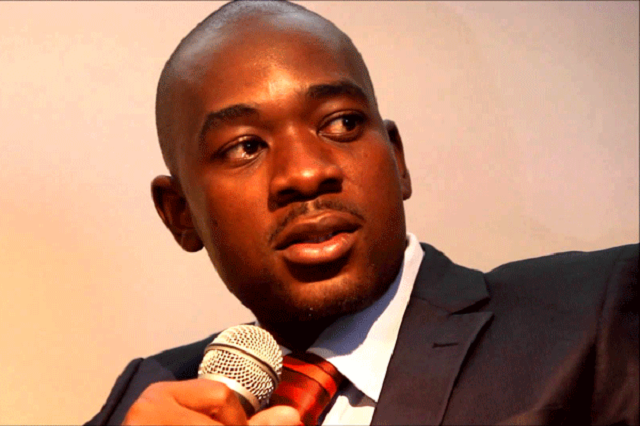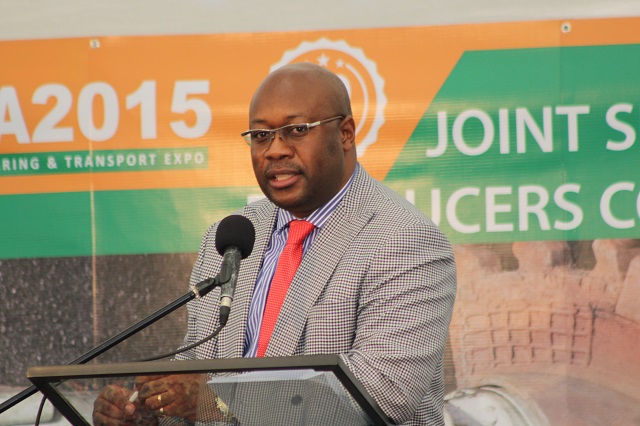Politicians must deliver on promises

Reason Wafawarova
Every politician knows that the key to winning elections is to make great promises. Nelson Chamisa in apparent novice excitement of taking over the MDC-T leadership after the death of Morgan Tsvangirai has taken the lead in reaching out to the masses for the upcoming harmonised general election.
Hitting the ground running, the 40-year-old politician has styled himself youthful in order to identify with first time voters.
He has also eagerly promised every fantasy of developmental luxury imaginable, starting with a pledge to make Zimbabwe the first developing country to have bullet trains; promising to build new cities, promising village airports for rural peasant farmers so they can export their produce by air to international markets right from their villages; and also promising eight lane one-way freeways across the country’s cities.
Campaigners promise to cure the ills of society including taxes, investment, jobs, government corruption, and freedoms.
We all hope, if elected, that they will bring about vast improvements in education, health, employment, infrastructure, and the economy.
There seems to be no limit to the amount of promises politicians will put in their manifestos. Political parties will hire political consultants so they can suggest as many promises as can ever be imagined, and promises will be made according to what is believed to be what the people want to hear, not according to what can be achieved from a pragmatic and practical point of view. In any tight race, politicians will always attempt to extract a few additional votes by promising to provide a solution to a specific problem that an interest group cares about.
This is why some groups will always feel it is strategic to start making demands during election seasons. It is believed an incumbent government is always at its negotiating weakest in the run-up to a watershed lection.
We have already seen the nurses trying industrial election to press for better remuneration and better working conditions, and we have read reports of teachers planning to embark on some kind of industrial action as well.
Needless to detail here the many broken campaign promises that have accumulated throughout history. There is always a huge difference between campaign audacity and implementation timidity.
For example, when Jon Stewart interviewed Barack Obama, he questioned whether the then US President had substituted campaign “audacity” with legislative “timidity”.
There is no logical reason to believe that a party that has failed over the years to mend and repair potholes in Harare where it runs municipal affairs can turn around and promise the country world-class spaghetti roads.
Whether or not this is a fair characterisation, the point is that no politician is immune from either not living up to pre-election hype or being accused of failing to do so. Zanu-PF promised to create two million jobs in Election 2013, and naturally questions have been asked on what happened to the job creation promise.
The MDC-T vowed to introduce transparency in our urban local authorities where it runs a number of councils, if not most; only to end up with encyclopaedic corruption of its own in councils such as Chitungwiza; with misplaced priorities in Bulawayo, and a life threatening service delivery system in Harare.
In many ways, voters are the eternal optimists who can’t learn from experience. We always want to believe that our politicians will improve our lives. We believe sweet nothings without putting any of the said promises to scrutiny. But when post-election reality hits, we forget how unrealistic we were in believing that somehow “this time,” the outcome would be different.
How realistic is the promise that the United States will just give one of our candidates $15 billion to spend on us? How realistic is the prospect of bullet trains in Zimbabwe within the next 10 years — it being the maximum time the promising candidate will have to deliver on his promise?
In 2008, many Obama supporters and independent voters alike got caught up in this sort of mass delusion of inflated expectations. Supporters sought miraculous results from Obama and the Democratic Congress who they voted into office and when the miracle failed to materialise, they reacted with outrage and contempt.
Obama could not deliver on one of his promises that did not even need money — closing Guantanamo Bay Prison within the first 100 days. Detainees are still languishing there uncharged nine years after Obama promised he was going to set the captives free. He did his eight years and left office, and nothing much has changed.
The Republicans capitalised on the angry mood of disillusioned voters, many of them basing their candidacies on the premise that their candidates would fulfil a new set of largely unrealistic promises.
This is how America ended up with Donald Trump, promising to kick out immigrants, to build a border wall against the Mexicans, and vowing to make the Mexicans pay for the cost. Make America Great Again! He screamed.
It may seem that dramatic election promises are synonymous with Nelson Chamisa, but unrealistic and broken promises and voter discontent are hardly a Zimbabwean phenomena. Perhaps what’s new is the social media and its extensive repository of videos that can now give people more power of judgment.
We do not have to rely on the power and viewpoint of editors of newspapers anymore.
We now cover our own news unedited, and we make our judgments instantly as we may so wish. We no longer rely on sometimes vague and obscure print media; a politician’s glaring inconsistency now goes viral within minutes of his utterances.
Marketing psychology provides intriguing insights into why broken promises are so hurtful to the customer. The feeling is called “negative expectancy disconfirmation.” It can easily be demonstrated in studies involving consumer products that fail to deliver on their advertised or promised effects.
According to this research, we have a bias toward being angrier when a product fails to perform than to be happy when it lives up to its claims. We are more inclined to be angry with the failure to deliver promised jobs than we are happier with the success of Command Agriculture phase one, for example.
We are inclined to be a lot angrier with the perceived failures of the Zanu-PF government under former President Robert Mugabe than we are happier with the current government’s huge strides in restoring political freedoms and a world standard human rights regime within a short five months.
We are more inclined to be angrier with past failures than we are happier with a leader working around the clock to attract as much foreign direct investment as can possibly be attracted within the shortest possible time, yet for all the past 17 years we have been yearning for the day when foreign investors would for once be interested in our country.
Canadians Peter Darke and colleagues (2009) assert that when a product fails to perform, we generalise to other similar products. We may even generalise to blame the advertising agency that marketed the product; and even distrust any other product associated with the agency. We can even go beyond this irrational extrapolation and start to distrust any product that is advertised by anyone. We simply stop trusting advertising, period.
So we hear some people saying even if Mnangagwa brings in all investment there is in the world, they will never trust anything he brings forward because he is from Robert Mugabe’s Zanu-PF.
We begin to hear that Robert Mugabe did not succeed in anything in the 37 years he led the country, that his mass education policy cannot be trusted, the expansion of the cities cannot be trusted anymore, that anything he ever touched must be distrusted, and that by extension there is this irrational extrapolation that ZANU-PF by definition cannot do anything that can be trusted.
Nelson Chamisa wants to capitalise on this perceived thinking found among many opposition supporters, and he wants to nationalise the feeling through his political rallies.
We know the stereotype that has equally been associated with Chinese products – that every single thing made in China cannot be trusted, that it is of poor quality, and will not last. If a Chinese immigrant cross-marries with a local woman and they have the misfortune of losing a baby to natural causes, people laugh and say Chinese things do not last.
This irrational distrust is what led Chamisa to single out Chinese investors as his target for victimisation, should he win elections. He wants to boot them out.
There are no other investors from any other part of the world that are distrusted by Chamisa and his supporters, except the Chinese.
Once our lives are impacted by the disappointing effect of broken promises, we tend to distrust those that broke the promises, generalising and extending our distrust to other people we associate with those we distrust.
A woman cheated by one men will sometimes tend to distrust all men, and a man cheated on by one woman will tend to generalise and distrust all women.
We can even come to a point where we distrust all politicians, all of those who work with, or for politicians.
In 2008 United States first time voters hopped on and led the Obama bandwagon the same way first time voters in Australia had gone wild with the Kevin 07 slogan, voting in Kevin Rudd to oust the overstayed John Howard.
In both countries many of these first time voters experienced the expectancy disconfirmation effect for the first time, with polls showing these young voters protesting the political process they had voted for.
Older and more cynical voters will not be easily carried away with the comic dramas happening at most of Nelson Chamisa’s rallies. They have built up enough defence mechanism so as to avoid the most painful stings of disappointment.
However, it seems that no one is completely immune to negative expectancy disconfirmation.
If our politicians are ever to be able to lead, there will have to be an end at some point to the negative expectancy disconfirmation effect. We as Zimbabweans will have to learn to trust again.
Great leaders require not only the ability to take bold action, but the willingness of citizens to allow them to try to win without having to make wild and unrealistic promises. On the morning after, it would be nice to wake up and be able to feel that whoever won or lost, the change is one we can truly believe in.
ED Mnangagwa seems to genuinely want to do things differently from his predecessor, and what he is promising is not dramatic but pragmatic, his engagement with the international community is based on basic economic sense driven by the scales of economics.
Those expecting him to deliver a recovered economy within five months are rather unrealistic.
Others even wanted an economic miracle within the first 100 days of Mnangagwa’s presidency. Emmerson Mnangagwa is neither Elisha nor one of the biblical lepers that scared away the Syrians to transform the famine economy of Samaria from one where a donkey’s head sold for eight shekels to a bumper economy in a matter of hours.
Here is some advice to our voters. Read both sides to every story. Inform yourself of what was actually said on the campaign trail, not what was reported to have been said.
Listen carefully to what politicians say. Avoid projecting your own wishes and desires into a candidate’s statement. Do not hear what you want to hear.
Make up your own mind. Do not follow the polls or the media. Don’t be swayed by slogans, song and dance.
Keep a balanced but positive perspective on the democratic process for the sake of the next generation.
Zimbabwe we are one and together we will overcome. It is homeland or death!
*Reason Wafawarova is a political writer based in Sydney, Australia.











Comments